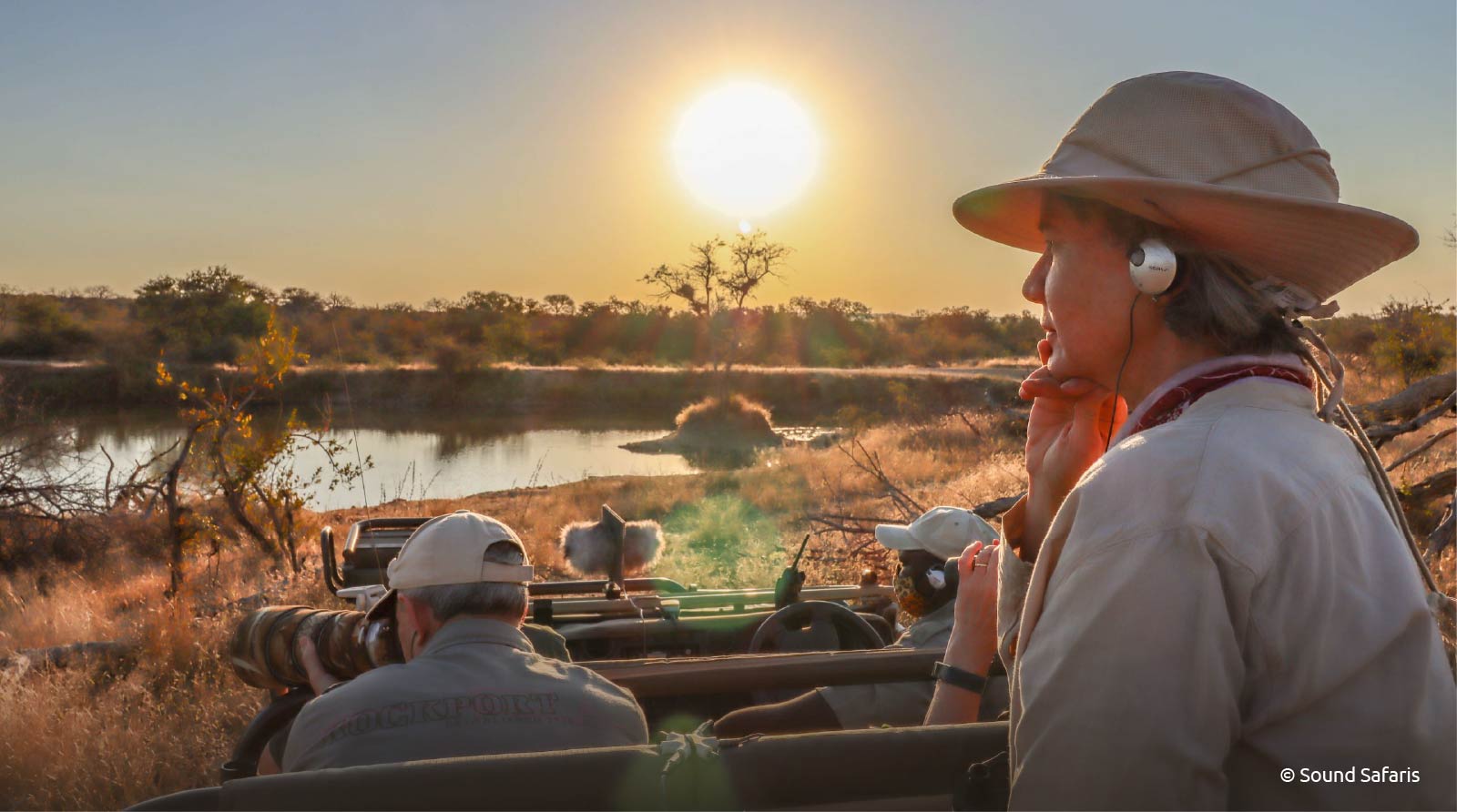Beyond Sight: Multi-Sensory Safaris Cater to the Visually Impaired & Enhance Experience

Africa is renowned for safari tourism, offering world-class game reserves and animal encounters. Yet, these safaris are largely designed for people who rely on sight to interpret and appreciate their surroundings, creating a barrier for individuals with visual impairments who want to experience the African bush.
When the company first opened for business, South African-based Sound Safaris’ multi-sensory safaris were for tourists who wanted something different from the usual game drive. Using advanced stereo microphones and amplifiers mounted on game-drive vehicles, Sound Safaris captured the intricate soundscape of the bush and transmitted it directly to guests through individual headphones.
“Multi-sensory safaris are a growing trend, driven by travellers becoming more conscious of the environment and their impact, seeking a more memorable and meaningful experience,” Sarah Solomon, co-founder of Sound Safaris, says. “They are more immersive and enriching, making you ‘feel’ rather than see the natural world.”
She adds that involving all the senses changes how people appreciate and enjoy wildlife experiences. “It’s a more profound experience that resonates with responsible travellers.”
According to Sarah, multi-sensory safaris are for anyone who seeks a deeper connection to nature and wants to learn about the many aspects of the natural world – not just the visual.
Bringing the blind into the bush
Realising the potential Sound Safaris would have for visually impaired people, the team got involved with the highly acclaimed documentary Call of the Wild, in which viewers join a blind child on a game drive.
Following the documentary’s success, the company led its first safari exclusively for local families with visually impaired children, in December 2024. Guests went on several game drives, as well as a boat ride, through the Dinokeng Game Reserve just north of Johannesburg, to listen to the wilderness.
The experience went beyond enhancing the audio aspects to exploring scent and touch. Sound Safaris makes an extra effort to drive past dung piles to elicit the smells of their environment, as well as water puddles and foliage to help guests feel the bush up close. Additionally, whenever they stopped to listen to animals, the guide passed around a binder of animal hides for the children to feel what they were hearing.
Three visually impaired teenagers in the group emphasised how amazed they were at how far South Africa has come in creating inclusive experiences for everyone. “I don’t ever want to go on a traditional safari again,” one said. “With the enhanced sound, I could hear a lot more than just footsteps. It was like having my 20/20 vision back.”
“It was heartwarming for us to see how much they enjoyed the experience,” says Solomon. She explains that multi-sensory safaris open the door for people who perhaps thought a traditional wildlife viewing experience wasn’t easily accessible to them due to its mainly visual component. “Now all senses are involved – sight, hearing, smell, taste, and touch. It’s a rewarding and stimulating adventure for all.”
Physical barriers to entry for blind people
Despite the growing demand for inclusive tourism, finding facilities that accommodate visually impaired people is still challenging in South Africa. Sound Safaris operates within Kwalata Private Game Lodge, located in the Dinokeng Game Reserve in northern Gauteng—just a half-hour drive from Pretoria, adjacent to the N1 highway. The 20,000-hectare bushveld and grassland reserve is the only one worldwide within the boundaries of a metro that features the famous Big Five, great plains for game viewing, and more than 380 bird species.
It's also a disability-friendly destination, with some chalets equipped with shower chairs and safety railings in the bathrooms, as well as easy-to-navigate premises for people with vision impairment, wheelchairs, or walking aids.
Financial challenges for visually impaired families
Specialised accessibility tourism is often prohibitively expensive because fully inclusive tourism experiences often require significant investment in infrastructure, specialised equipment, and trained guides. While essential expenses can be claimed through tax incentives, families with visually impaired children often find these insufficient to cover the real costs – let alone enjoyable activities.
The family safari with Sound Safaris was made possible by a private donor. This is a good example of how the private sector can support a more inclusive society. Through Corporate Social Investment (CSI) programmes – whether funding the development of disability-friendly facilities, donating to tourism accessibility programmes, or sponsoring safaris – companies can enable visually impaired individuals to experience many of the activities from which they’ve been previously excluded.
Investing in inclusive tourism benefits everyone; it enriches South Africa’s tourism offering, strengthens corporate social responsibility efforts, and, most importantly, ensures that the magic of the African bush is accessible to all. As more businesses recognise the value of supporting such initiatives, the dream of truly inclusive safaris can quickly become a reality.
A practical guide to tapping into multi-sensory wildlife safaris
